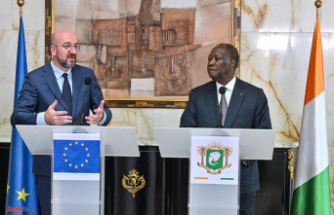The Government of Kazakhstan is cornered by the strong protests recorded by the rise in the price of liquefied gas, which in some cases has doubled in a few days. Groups of protesters broke into the City Council of Almaty, economic capital of the country.
The president of Kazakhstan, Kasim Jomart Tokayev, has accepted this Wednesday the resignation of the country's government and has allocated Vice Prime Minister, Aliñán Smailov, the functions of the country's prime minister. It is one of the first decisions of him after accepting the resignation of the so far head of government, Askar Mamin. To contain the revolt, Tokayev has reversed. He has introduced a state price regulation for a period of 180 days "not only liquefied gas, but also of gasoline and diesel," said the presidency of Kazakhstan in a statement. The president has ordered a state regulation of the prices of basic food for the population, as well as "a moratorium on the increase of municipal rates".
The increase in the price of liquefied gas has come when, as of January 1, it became subject to supply and demand, without limitations, according to the Ministry of Energy. The liquefied petroleum gas (GLP) is widely used as fuel in areas of Kazakhstan. Many citizens adapted their cars to save money, but according to the government price regulation was causing losses to producers. The protesters consider that the price increase is unfair given the enormous energy reserves of the country, which is an exporting power of oil and gas and the richest of the so-called 'Istans'. The country, located south of Russia and west of China, is the main producer of uranium in the world.
Kazakhstan has strong ties with Moscow and 22% of its population is considered to be Russian origin. Until 2019 he was in front of the country-during 30 years-Nursultán Nazarbayev. During the mandate of him the country had stability, but there was also repression of opponents and high corruption rates. TOKÁYEV (Nazarbáyev's close collaborator for decades) decided to change the name of the capital to Nur-Sultan.
The first mobilizations have been carried out these days in Manguistau, in the west of the country. But in the last hours they have spread to the neighboring regions of Atirau and the westernmost Kazakhstan. This Wednesday, correspondents of the AFP agency in Almaty witnessed how some men dressed in police uniform showed their shields and helmets and embraced the protesters. "They put on our side," a woman shouted. In Zhanoozen, considered center of the country's oil industry, there are also protests. Concentrates in different cities request a regime change.
After leaving the presidency in 2019, Nazarbayev retained extensive powers as president of the Security Council. The president of Kazakhstan has announced that Nazarbayev has stopped holding that position.
The government faces an unprecedented situation. For years, the country has cultivated an image of political stability to attract hundreds of billions of foreign investment dollars in their oil and metal industries. Tokayev has signed a decree to establish the state of emergency in the Almaty region and also in Mangistau, imposing a touch of night. Restrictions on freedom of movement will also be applied and the freedom of assembly is restricted.
The mayor of Almaty, Bakytzhan Sagintayev, said the situation in the city was under control and that the security forces were stopping "provocators and extremists", according to Reuters. Local media speak of plundered banks, razor shops and attacked people in the street. In several factories, the workers have been declared on strike.
This morning the protesters have marched towards the town hall of the city of Almaty. The security forces have tried to stifle the assault, but according to local media the protesters have broken into the building and have even been able to take agents of order as prisoners. Shooting was heard in the vicinity and a great cloud of black smoke could be seen. According to witnesses, the police threw stunned grenades and used tear gas against a multitude of several thousand people.
The Ministry of the Interior, who has accused the demonstrators of looting and blocking several roads and networks of railroads, has alerted that at least 95 police officers have been injured in clashes. More than 200 people were arrested.
Tokayev has indicated the government as the main responsible for the current situation, especially the Ministry of Energy, and the Kazakh business sector, as the newspaper 'Kazakhstanskaya Pravda' has collected.
The spokesman for Kremlin, Dimitri Peskov, said Kazakhstan can solve his own problems and that it is important that no one interfered from abroad, according to the RIA Novosti news agency. Kazakhstan, according to Moscow, has not requested Russian help to deal with the protests.
Russia is very sensitive to the disturbances in the former Soviet republics. It considers them part of their sphere of influence, and also political models are similar: permanent leaders, control of alternatives to power, media control and judiciary but trying not to spoil individual liberties or worsen the standard of living. That is why any sign of instability is closely followed in Moscow to prevent own turbulence in the future. In the past Russia has accused the West of Aviva revolutions in countries such as Georgia and Ukraine. He has also supported the authorities of Belarus to repress the demonstrators who claim democracy. In the case of Central Asia, China is the other geopolitical actor who can gain relevance with each imbalance in the area.
Date Of Update: 06 January 2022, 07:29











